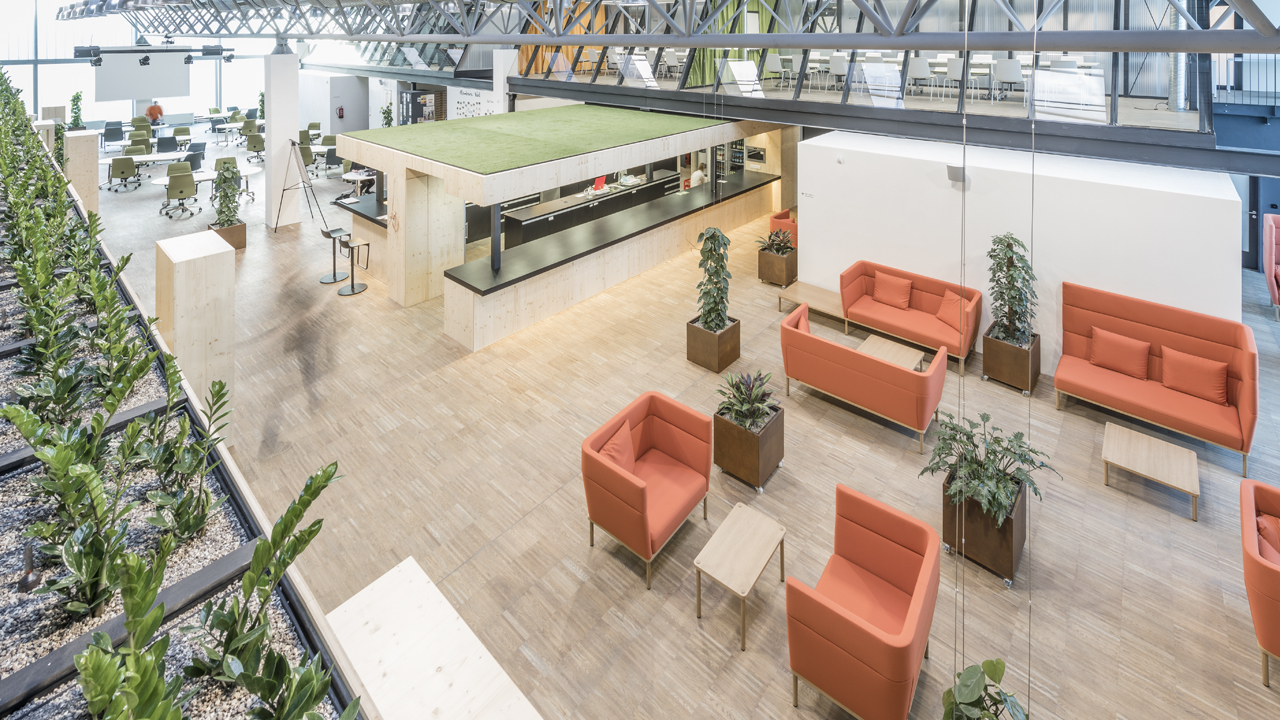Analogue offices for digital nomads
By Wojciech Czaja, 25.05.2022

More and more people in the creative industries, more and more home offices. But the market and the advertising industry are teaching us that the young worker of today is nothing if not a co-worker. Comments on a trend.
They are cultural managers, they organise mediation sessions with clients, they work as life curators, offer holistic entrepreneurial counselling, run yoga blogs, teach body language, organise rhetoric seminars for toddlers, work as Esperanto interpreters, try their skills as freelance trend scouts, make self-drawn visiting cards, and manufacture chocolates made of pollen. The new millennium is bursting with new occupational ideas. And this goes along with the trend very well, because out of the 4.1 million Austrians in employment around 478,500 people are self-employed, which is about twelve per cent. And the trend is growing. In comparison: ten years ago the quota of freelancers was lower by a fifth.
“The creativity of modern freelancers is remarkable,” comments the Viennese sociologist Reinhold Knoll. “It’s wonderful that young people have the guts to find a niche in the market, establish themselves, and slowly but surely work their way up. But this shouldn’t belie the fact that the general employment market in Europe is shrinking more and more.” Social politics is declining, the social background conditions are more difficult than ever before.“ In the end, the one-man business is often nothing other than a creative attempt to escape the slough of poverty,” states Knoll. “This might be kept up quite well for a couple of months. But as soon as the subsidies and tax benefits abate, the daily struggle for existence takes over. And, as we all know very well, not everyone is in a position to succeed economically.”
Co-Working – Office on time
One great financial burden is having one’s own office. Rent and furniture devour a great deal of money. One way of avoiding this pressure is co-working, the renting of an office work station for a specific period. Firstly, the demand for this is growing, and secondly it is creating another valuable means of self-employment, namely the so-called co-working office operator. And this is a very good thing.
The range of possibilities in the big cities is very diverse and covers everything from quaint ground-floor digs straight out of a novel about flat-sharers, or boboid, open-space workshops, or slick studios that could be part of a sixties’ sciencefiction film set, when the future was still white and brightly lit. All we need is Captain Kirk and Lieutenant Uhura. Such offices are for instance The HUB in Prague (location: a former factory building) or the Neno Office in Vienna (location: on the pulsating Mariahilfer Strasse). What does Reinhold Knoll think of them? “These office models suit the need for communication between working people very well, and in the best-case scenario there is a relaxed, student-type atmosphere at the temporary workplace that corresponds ideally to our cultural model for the next younger generation.”
You can rent space in most co-working offices for a few euros a day, social contacts included. It’s possible that your neighbour will turn out one day to be a potential client. This would be very much in the spirit of the co-working concept. Ideally, you don’t buy the neo-laborative service, but barter it. The motto would be: seek homepage graphic artist, offer design supervision. The only unsolved problem remaining would be Knoll’s misgivings about monetary failure.
(c) Wiesner-Hager




